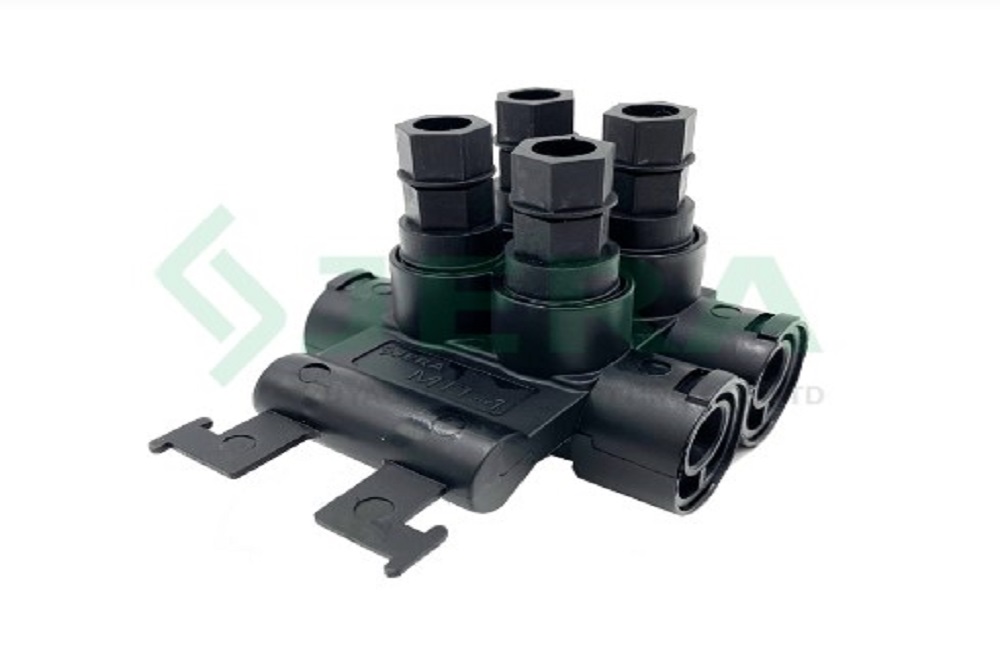
Electrical connectors with insulation piercing are designed to make a secure and reliable electrical connection by piercing through the insulation of electrical wires.
A variety of applications use insulation piercing connectors, including electrical distribution and power transmission, as well as automotive and telecommunications. In addition to providing a strong and durable connection, they maintain the integrity of the insulation around the wires at the same time.
Insulation drilling connector components: what are they?
Insulation piercing connectors (IPCs) normally consist of several components that work together to create a reliable electrical connection.
Insulation tap connectors from JERA LINE include the following components:
A spearhead is composed of a nut, a stainless steel washer, an upper body, a blade tooth, and a waterproof seal, and a lower body, which is composed of a stainless steel bolt and an end cap.
It is especially useful in applications where maintaining the integrity of the insulation is critical, because these components work together to create a robust and reliable electrical connection without stripping the insulation from the wires.
What are the uses of insulation piercing connectors?
Electrical applications that use insulation piercing connectors (IPC) include:
IPCs connect overhead power lines, underground cables, and transformers in power distribution systems. They are commonly used to splice electrical wires.
IPCs are commonly used in telephone distribution boxes and junction boxes for splicing and connecting telephone wires, fiber optic cables, and coaxial cables.
IPCs are used in street lighting systems to connect and splice electrical wires. They are commonly found on poles and junction boxes.
It is commonly used in battery connections, electrical sensors, and wiring harnesses in the automotive industry to connect and splice electrical wires.
In industrial applications, IPCs are commonly found in motor control centers, switchgear, and control panels, where they connect and splice electrical wires.
Why should insulation piercing connectors be used?
There are several advantages to using insulation piercing tap connectors in electrical applications, including:
A time-saving feature of IPCs is the elimination of the need to strip the insulation from wires during installation or maintenance.
The IPC provides a secure and reliable electrical connection without the risk of damaged wires or loose connections.
A waterproof seal is provided by JERA ENERGY IPCs, making them suitable for outdoor and underground applications.
IPCs are capable of working with a wide variety of wire types and sizes, offering flexibility in various electrical installations.
IPCs are designed to penetrate insulation during installation, reducing the risk of electric shock and injury.
Due to their compact size and ability to be used in tight spaces, IPCs are well suited for applications with limited space and connectors.By simplifying the installation process and minimizing the need for additional components, IPCs can reduce material and labor costs.
Many industrial and outdoor IPCs are designed to withstand harsh conditions, ensuring long-term reliability.
The Yuyao JERA LINE CO., LTD was established in 2012 to manufacture cable infrastructure solutions. With our direct factory in Yuyao, Ningbo, China, we are proud to offer a wide range of electrical power cables, with a particular focus on LV and MV. Through innovative and reliable solutions, we deliver exceptional value to our customers.